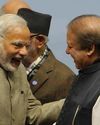Despite much talk of “soft power”, the fact is that whichever way you slice it, Indian culture fares poorly at seeking or exercising it

THERE IS HARDLY any doubt that a cultural world-system exists. It is related, but not identical, to a world economic or political system. How to decode and understand its mechanisms, especially its impact on India? Few critics or commentators have ventured to do this. In this series of articles, that is what I propose to do.
The only notable attempt till date has been Culture, Globalization, and the World-System: Contemporary Conditions for the Representation of Identity (Minneapolis: University of Minnesota Press, 1997) edited by Anthony D King, but it hardly refers to India. I became interested in world-systems theory around the same time, especially in India’s position. Some of these views were first presented at the 11th ACLALS Triennial Conference, 16 December 1998, Kaula Lumpur, appearing in the proceedings later.
The question to be answered is not so much whether worldwide economic and political ideologies and institutions influence — even control — cultural production in societies such as ours. Evidently, they do. But more vital to our interests is to expose the systemic nature of such determination. A concomitant question might be how our own culture, in turn, impinges upon the cultural world-system. In other words, have we participated in the cultural world-system to our benefit or advantage?
Such questions may have common sense responses, but require deeper, trans-disciplinary studies for more thorough or deeper comprehension. To start with, a quick, if obvious admission: traditionally, we have not paid too much attention to, let alone tried to understand, the cultural world-system. Despite much talk of “soft power”, the fact is that whichever way you slice it, Indian culture, especially Hindu culture, fares poorly at seeking or exercising it.
This story is from the October 2017 edition of Swarajya Mag.
Start your 7-day Magzter GOLD free trial to access thousands of curated premium stories, and 9,000+ magazines and newspapers.
Already a subscriber ? Sign In
This story is from the October 2017 edition of Swarajya Mag.
Start your 7-day Magzter GOLD free trial to access thousands of curated premium stories, and 9,000+ magazines and newspapers.
Already a subscriber? Sign In

Refuging Progess
There is a well-orchestrated global conspiracy to deny scientific and technological developments from the West to Third World countries.

The Monk Of Science
Vivekananda believed that Religion should be subjected to scientific methods of investigation. The third and concluding part of our series on the Swami and his views on science.
The Next Step
Indian technical manpower can be trained for high-value-added emerging services in the era of mass commoditisation of hardware.
The Threat Of Autarchy
The force of globalisation is an irreversible reality, and it is countries like India and China that will nurture it going forward.

Neanderthals: The Womb Of Caves
Recent discoveries indicate that Neanderthals may have had a rich inner life, including symbolic thought. Indeed, they may have been the progenitors of human religions.

Getting India's World Right
Incremental concessions will get India nowhere with Pakistan and China. What we need is a classically conservative foreign policy, based on realism.

The Hesitant Orbit
In order to march boldly ahead into the deep space, New Delhi must work towards building a station, boost its techno-economic planning and use the Indian Space Research Organisation smartly.

Nudges And Narratives
The debate surrounding Sanjay Leela Bhansali’s Padmavati brings India a complex network of portraits within a cultural world-system.

The Spell Of Specialisation
THE INDIAN ADMINISTRATIVE SERVICE NEEDS AN URGENT REJIG. THE KEY TO SPEED AND EFFICIENCY LIES IN PUTTING AN END TO A GENERALIST APPROACH AND IN GOING FOR A NEW SERVICE.
The Great Gamble
With demonetisation, the prime minister has taken a huge risk— both economic and political. He must succeed, because this move could transform both our economy and our society.